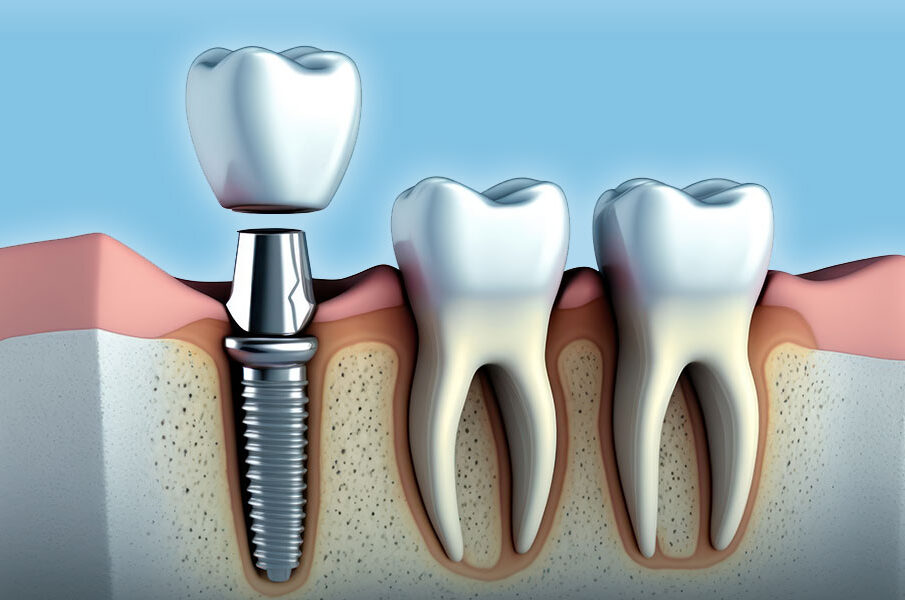How to Care for Your Dental Implants?

Maintenance of dental implants in Farragut must be implemented and followed strictly on a daily basis in order to make them last as long as possible and be functional. To avoid damaging the surface of the implant one should brush their teeth with soft bristles and a nonabrasive toothpaste, brushing at least twice a day. It is critical to address the subgingival valley zones and access all IMF surfaces.
Also, it is useful to floss every day, to clean the area between the teeth and the implants, and to take off the food particles and plaque. It is more efficient in cleaning these regions to use floss created for the implants or use an interdental brush. One can add an antimicrobial mouthwash to your regular practice in order to minimize the presence of bacteria in the mouth.
How Often Should a Person See His/Her Dentist?
Dental checkups are recommended for your dental implants as they can easily become a breeding ground for bacteria if not well taken care of. If it is possible, plan your dental checkups at least twice a year, if a dentist prescribes a more frequent attendance, stick to the prescription. In such visits, your dentist will clean the implants and assess their health to ensure they are not covered by hard substances such as plaque and tartar.
Professional cleanings are important as they get deeper than the brush and floss routine might not reach. You also go for a check on any signs of gum disease or other conditions that may affect the implants.
What are the things one should avoid when on a diet?
Diet is one of the keys when it comes to the maintenance of dental implants. It is recommended to be cautious about the kinds of foods that can put pressure on the implants or better still, actually loosen them up; foods that are hard and sticky are not recommended.
These include hard candies, ice, and hard-to-chew meats as the force which is exerted on the implants in the bite may be huge and could cause an unfavorable outcome.

What habits should be avoided?
Some behaviors are not beneficial for your dental implants and that leads to their early deterioration. Smoking is especially damaging as it can cause implant failure- it interferes with the blood supply to the mouth’s gum tissues as well as healing. Further, do not use the teeth to open cans or packages, or chew things in the mouth which are not food as this could push a lot of force on the implants.
Other behaviors that also harm the teeth, and can be done involuntarily include, grinding or clenching the teeth can also harm implants. If you do, then using a nightguard so the implants do not move when you are asleep might be right for you.
Conclusion
When it comes to dental implants, making sure they are healthy long-term requires great care, staying consistent with dental check-ups, and choosing what one eats carefully. If you brush your teeth using the proper technique, visit dental check-ups at the recommended intervals, and avoid behaviors that are detrimental to your implants, you should be able to achieve the absolute most from your implants and not a ‘bare minimum’.
This is true because general dental hygiene requires constant checkups and addressing any problems in advance before they become more severe. Dental implants, when well-maintained, guarantee patients of good dental health and also regain their confidence levels by giving them good-looking teeth that they desire.










